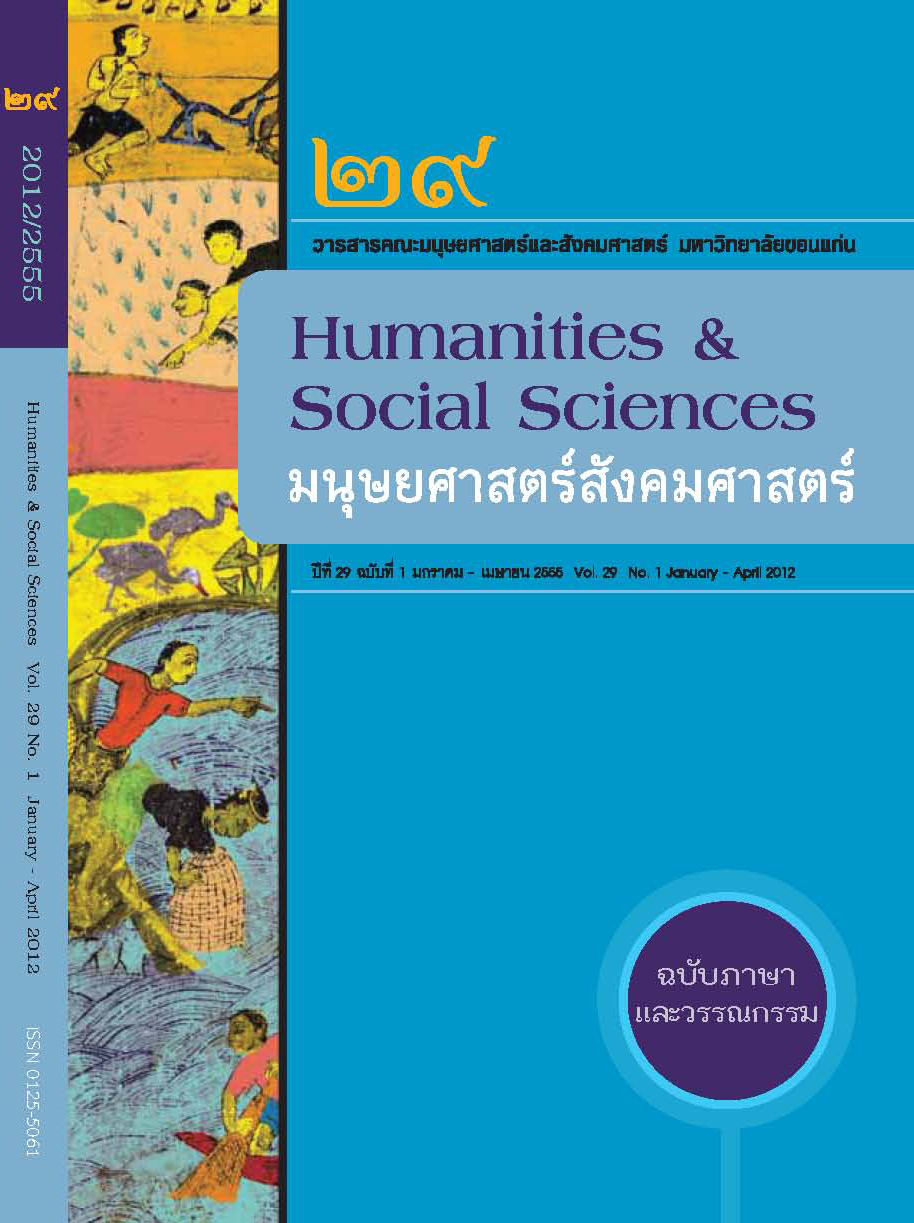Empowering Second Language (L2) Learning through Metacognition
Abstract
บทคัดย่อ
การรู้คิด (metacognition) เป็นสิ่งที่สำคัญต่อการเรียนรู้ของมนุษย์ งานวิจัยด้านการเรียนและการสอนภาษาอังกฤษเป็นภาษาที่สองได้แสดงให้เห็นว่าทักษะการรู้คิดของผู้เรียน สามารถส่งเสริมการเรียนภาษาแก่ผู้เรียนได้โดยตรง บทความนี้บรรยายขอบเขตของการรู้คิดต่อความสำเร็จในการเรียนของผู้เรียน โดยเริ่มจากการอธิบายความหมายของคำว่าการรู้คิด จากนั้นนำเสนอความสำคัญขององค์ประกอบของการรู้คิดโดยเฉพาะอย่างยิ่งองค์ประกอบตัวที่ชื่อว่า metacognitive knowledge ในการส่งเสริมการเรียนภาษาอังกฤษในเป็นภาษาที่สอง ตอนท้ายของบทความเป็นการนำเสนอประเด็นเกี่ยวกับแบบการเรียนการสอนที่เน้นพัฒนาการรู้คิดของผู้เรียน และแนะนำแบบการเรียนการสอนในห้องเรียนที่สามารถส่งเสริมให้ผู้เรียนมีทักษะการรู้คิดมากขึ้นอันจะนำไปสู่ความสำเร็จในการเรียน
Abstract
Metacognition is increasingly recognized as important to learning. Research in second language (L2) teaching and learning has shown that learners’ metacognition skills can directly promote achievement in language learning. This article describes the extent to which metacognition facilitates students’ learning achievement. The article begins by establishing a general understanding of the term metacognition and then moves on to a discussion of two components of metacognition that directly influence one’s metacognition skills. These two components are metacognitive experience and metacognitive knowledge. Then, I devote a section to exclusively discuss metacognitive knowledge, which is claimed to dominantly influence a student’s L2 learning. Finally, I review research and literature on classroom pedagogy designed to facilitate the development of metacognition. In this respect, I particularly highlight the type of classroom instruction generally known as metacognitive instruction. The article concludes by proposing an effective and practical classroom instructional pattern which relates students’ awareness (metacognition) to learning strategies. This instructional pattern is known as metacognitive processes.



